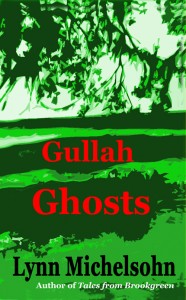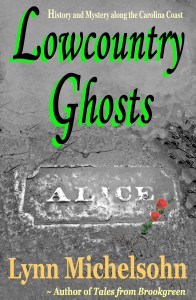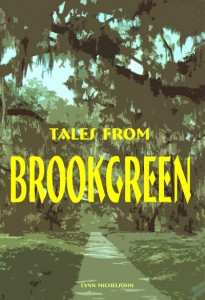Gullah: The Language of African-American Slaves on South Carolina Lowcountry Rice Plantations
[A selection from Gullah Ghosts, also in Tales from Brookgreen]

Paperback $7.95 (US).
Available from these booksellers.
As Cousin Corrie Dusenbury, a Hostess at Brookgreen Gardens, the popular South Carolina tourist attraction, explained it to visitors in the 1950s . . .
Gullah was the language of the African-American slaves on rice and cotton plantations in the South Carolina Lowcountry and on the Sea Islands during Colonial times. Nobody can tell you for sure how Gullah developed, but the people who have studied these things have some idea about it and this is how they explain it.
The slaves who were brought to South Carolina came from different parts of West Africa. Each African area and tribal group had its own language and customs. When the slaves arrived on Lowcountry plantations, communication was a big challenge. Slaves and planters spoke different languages and often fellow slaves also spoke different languages, but they all had to understand each other well enough to live and work together.

Paperback $5.95 (US).
Available from these booksellers.
A pidgin language developed that contained words and grammatical structures from English and from the various African languages. People who study languages tell me that at this stage Gullah was a pidgin language because it was one that no one spoke as his native language, but it was one that those speaking different languages used to communicate with each other. The planters and overseers kept speaking English and the slaves kept speaking their own various languages, but each also learned to speak the pidgin language called Gullah to communicate with each other. Some people think the name Gullah came from the word Angola, which was the homeland of many of the slaves.

Paperback $7.95 (US).
Available from these booksellers.
As new generations of slaves were born on the South Carolina Lowcountry plantations, these children grew up speaking Gullah as their native language. Gullah became a creole language, which is one whose words and grammar are a combination of different languages, but one which is now the native language of a group of people – in this case the descendants of the slaves brought from Africa.
Planters and other whites continued to speak English, of course, but also spoke Gullah to communicate with their workers. Planters and their families often learned Gullah as children from the nurses and other household servants who helped raise them. These servants often also told them Gullah folktales or ghost stories in the Gullah tradition.
Copyright 2004 Lynn Michelsohn
To learn more about South Carolina Lowcountry history and culture, including the Gullah and their language, read . . .

Paperback $12.95 (US).
Available from these booksellers.
